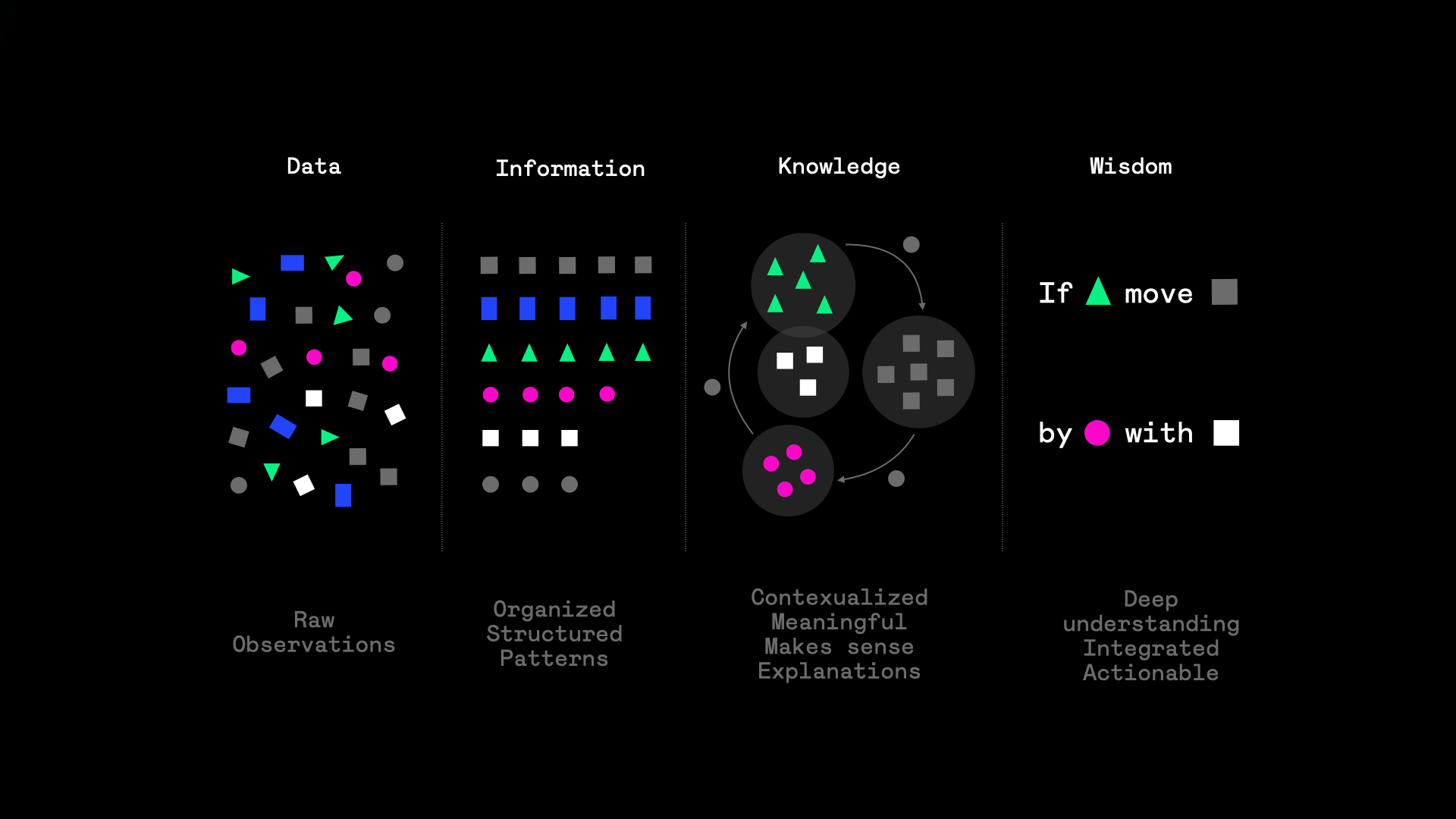The DIKW is a core framework of Personal Knowledge Management (PKM) & Information Science. It maps the flow of our cognitive processing.

In details
Let's start from DATA:
- Raw
- Unprocessed
- Unfiltered
observations, facts & readings.
As modern knowledge workers, we're immersed in a constant flow of data.
Data is the new oil
— Clive Humby
We choose what to filter & process.
This marks the shift to INFORMATION.
We structure / filter / interpret data.
We create specific representations (charts, tables, dashboards).
They help us to recognize patterns & separate signals from noise.
That's information!
Patterns/signals derived from single or multiple data sources.
Universe’s only true war: war between order and disorder; between entropy and information
— César Hidalgo
Information implies order & organization.
Yet, only limited context.
When we start contextualizing information further, we begin our progression toward KNOWLEDGE.
Knowledge implies internalization & understanding of the information.
You may ask: "If knowledge is something internalized (meaning it's in our mind), how do we manage it using external tools?"
The whole idea of knowledge management refers to the practice of managing knowledge cues AND/OR information. Everything you store in your knowledge system either prompts you to get back to what you already understand OR facilitates new knowledge to emerge.
Knowledge makes information meaningful.
We start seeing casual & other relationships between pieces/objects/phenomena that make sense to us.
Knowledge is information with causal power
— David Deutsch
We form better explanations of the subject that we are working on. Coherent models start to emerge.
This leads us to WISDOM.
Wisdom is all about integration & action.
It implies deeper understanding & fine-grained reasoning.
Wisdom is not a product of schooling but of the lifelong attempt to acquire it.
— Albert Einstein
Wise people:
- Are able to apply general frameworks
- Can reason both using first principles and analogies
- Form judgments that are accurate and reliable
Knowledge here is deeply internalized to the point that it looks & feels like intuition.
Wisdom gives us the abilities to perform complex tasks without significant cognitive effort.
It enables:
- Better decision-making
- Problem-solving
- Synthesis
- Anticipatory thinking
Video
Important considerations
DIKW is foundational framework
Many frameworks are based on DIKW.
For example, Tiago Forte's CODE (Capture/Organize/Distill/Express) framework maps almost perfectly to DIKW.
Never linear
In our cognitive processing, we rarely go from stage to stage in a sequential manner.
The process is iterative and messy.
We move back and forth between stages: acquiring and processing new data, applying & updating our current knowledge.